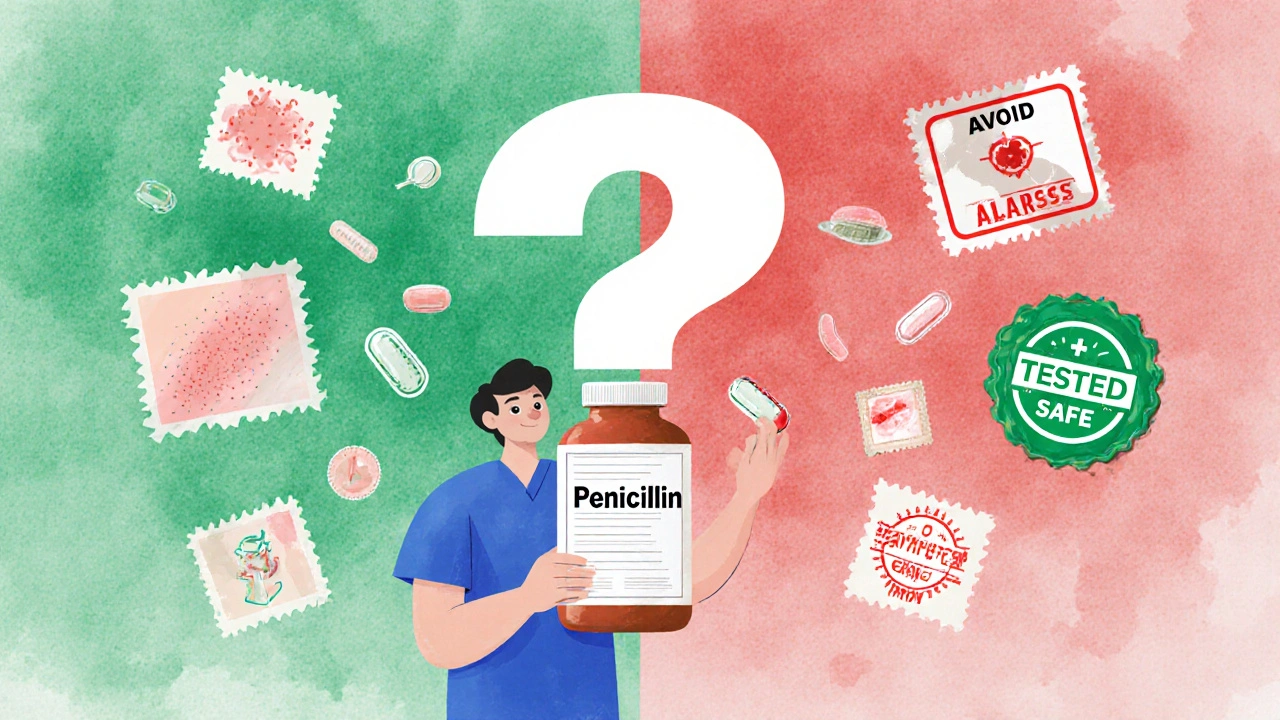Drug Allergy: Symptoms, Triggers, and What to Do When You React
When your body mistakes a drug allergy, an immune system overreaction to a medication that can cause anything from a rash to life-threatening shock. Also known as medication hypersensitivity, it’s not just a side effect—it’s your immune system attacking what it thinks is a threat. This is different from nausea or dizziness from a pill. Those are common side effects. A true drug allergy means your body has built a defense against it, like it would against a virus.
Some drugs are far more likely to trigger this than others. penicillin, a common antibiotic often linked to allergic reactions, including hives, swelling, and anaphylaxis is the biggest culprit. But sulfa drugs, used for infections and sometimes in diabetes pills, and even NSAIDs, like ibuprofen or aspirin, which can cause breathing trouble or skin rashes in sensitive people are frequent triggers. If you’ve had a reaction to one drug in a class, you might react to others in the same group. That’s why doctors ask about past reactions—not just to avoid trouble, but to keep you safe.
Reactions don’t always show up right away. You could take a pill for days and only break out in a rash on day five. Or you might feel fine after your first dose, then react badly the second time. Symptoms range from mild—itchy skin, hives, swelling of the lips or eyes—to severe: trouble breathing, throat tightening, or a sudden drop in blood pressure. That last one, called anaphylaxis, is an emergency. If you’ve ever had it, you need to carry an epinephrine auto-injector and wear a medical alert bracelet.
Not every bad reaction is an allergy. Some people get stomach upset from antibiotics, or a headache from blood pressure meds. Those aren’t allergies. But if your skin breaks out, your face swells, or you feel like you can’t breathe after taking something new, it’s worth getting checked. Allergy testing isn’t always straightforward, but skin tests or blood tests can help confirm what’s causing it. And once you know, you can avoid it—and tell every doctor, pharmacist, and nurse you meet.
The posts below cover real cases and practical advice: how antihistamines like desloratadine can help with mild reactions, why certain painkillers like etodolac might trigger issues in sensitive people, and how to spot hidden triggers in everyday meds. You’ll find guides on what to ask your doctor, how to read labels safely, and what alternatives exist when your usual drug is off-limits. This isn’t just about avoiding a rash—it’s about protecting your health when you need medication the most.
When to Avoid a Medication Family After a Severe Drug Reaction
Not every severe drug reaction means avoiding an entire medication family. Learn when cross-reactivity is real, when it’s not, and how to get tested to avoid unnecessary restrictions on your treatment options.
Read more
